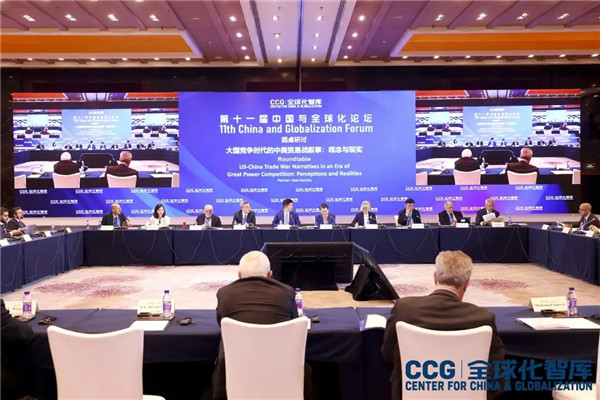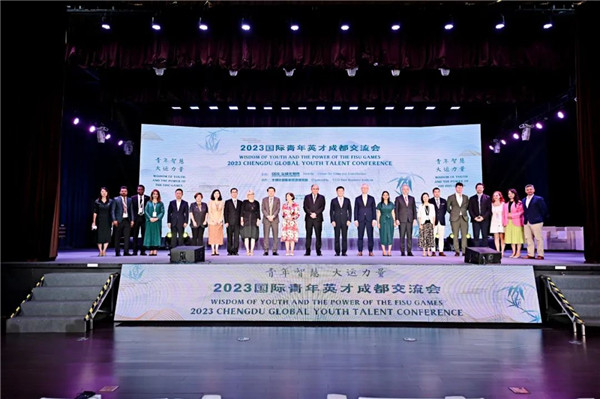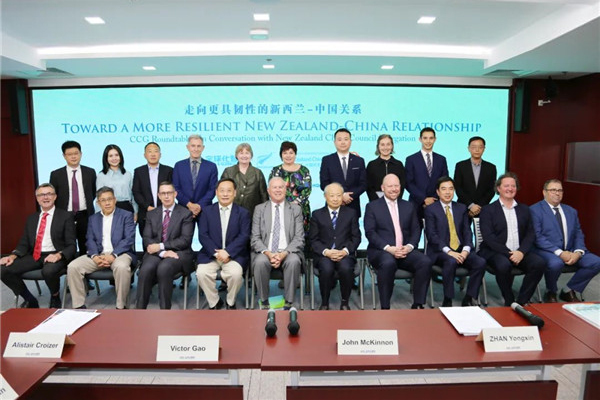60 Countries Diplomats Join in CCG Ambassadors Roundtable
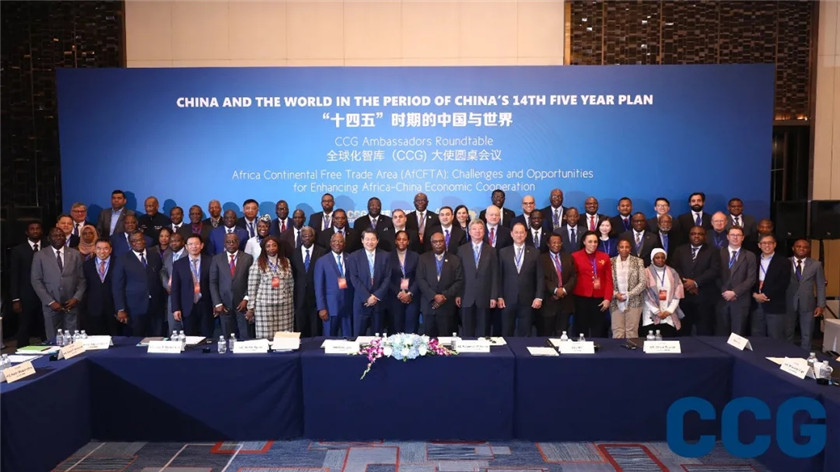
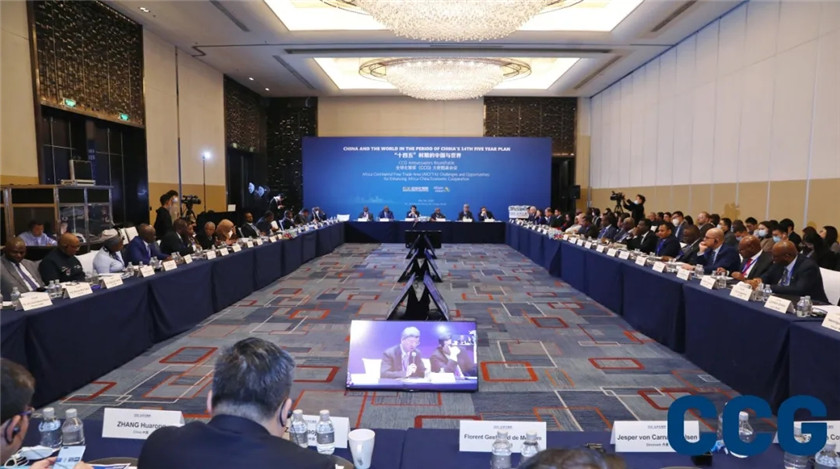
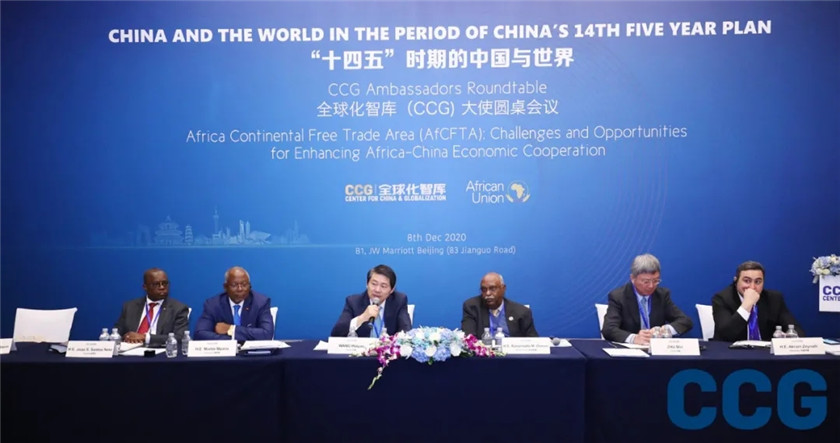
On December 8, 2020, the Center for China and Globalization (CCG) held the Ambassadors Roundtable on “China and the World in the Period of China’s 14th Five Year Plan”, which discussed new opportunities for international cooperation in the 14th Five-Year Plan (FYP), and ways to strengthen cooperation between China and the African Continental Free Trade Area (AfCFTA).

The opening remarks were delivered by Wang Huiyao, president of CCG; H.E. Rahamtalla M. Osman, permanent representative of the African Union (AU) to China; and H.E. Martin Mpana, ambassador of the Republic of Cameroon, dean of African Ambassadors Group. Zhu Min, chairman of the National Institute of Financial Research at Tsinghua University and former deputy managing director of IMF, introduced the highlights of China’s 14th FYP. Ambassadors, counselors and embassy representatives of more than 60 countries discussed the prospects for multilateral economic cooperation, cross-border trade and free trade zones.
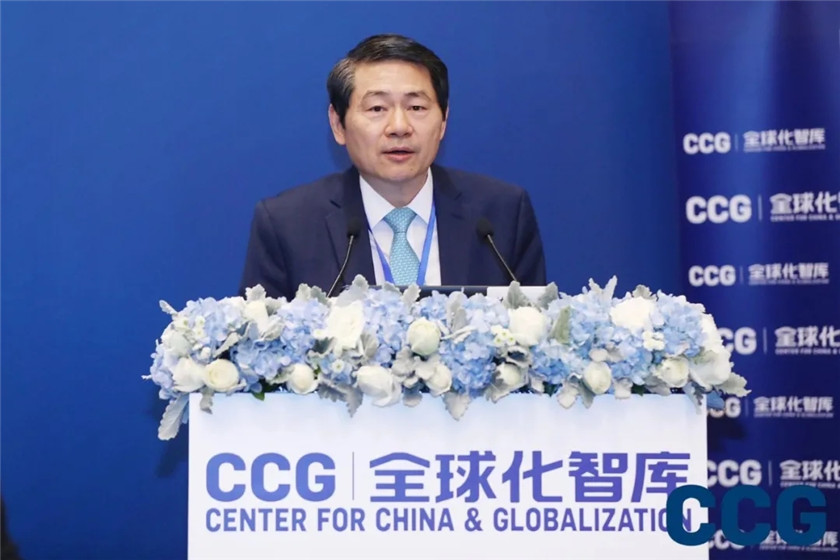
Wang Huiyao,CCG President
In his opening remarks, CCG President Wang Huiyao said that China’s 14th FYP proposes to make full use of both domestic and international markets and resources, and actively promote the coordinated development of imports and exports, foreign investment and outbound investment. He highlighted two features in this process: the signing of RCEP and growing voices for joining CPTPP.
Wang noted that China has positive attitudes towards CPTPP. It is a further demonstration of China’s commitment to openness, free trade and the development of China and the world. He also said that by reducing tariff and non-tariff barriers, RCEP will be a catalyst for Asian integration and solidify China’s position in the heart of the regional economy. Wang also stressed the importance of AfCFTA. He said that exploring new markets in Africa is a promising pathway for Chinese enterprises “going global,” despite various challenges such as lack of deep knowledge of local realities and gaps in infrastructure and talent. On December 5, the AU held the 13th extraordinary session of AfCFTA. Multilateralism and globalization have been revitalized. In the future, CPTPP will be a platform for multilateralism.

H.E. Rahamtalla M. Osman,permanent representative of the African Union to China
H.E. Rahamtalla M. Osman, permanent representative of the African Union to China, mentioned the holding of the 13th extraordinary session of AfCFTA by AU last Saturday, where the assembly adopted the declaration and the commencement of trading as scheduled for the 1st of January 2021. He said this testifies that AfCFTA is now a reality and all these steps undertaken show the determination of African Union member states to quickly achieve the economic integration of the continent. He noted that the upcoming of 14th FYP has drawn domestic and international attention.
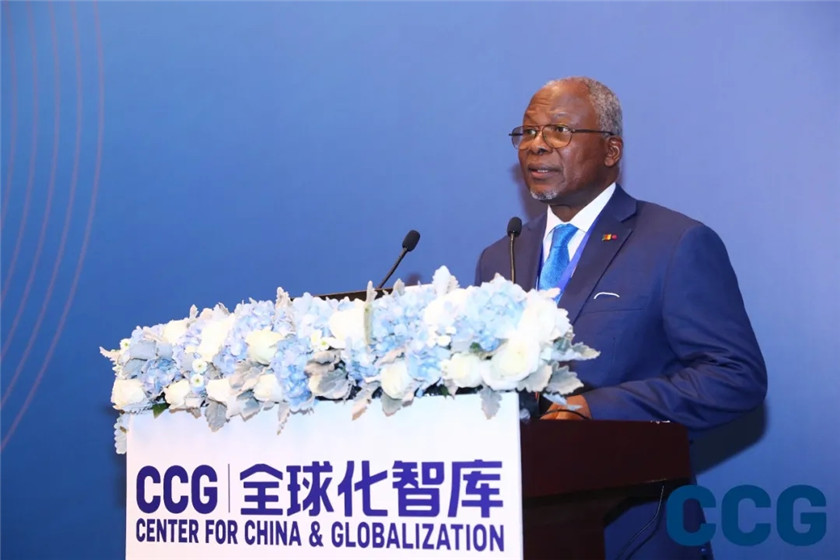
H.E. Martin Mpana,ambassador of Cameroon to China and dean of African Ambassadors Group
H.E. Martin Mpana, ambassador of Cameroon to China and dean of African Ambassadors Group, said that the AU is committed to regional integration, peace and stability, and the ultimate goal of African leaders and people has always been socio-economic development. Currently, the AU has strategic initiatives in agriculture, trade, mining, etc. The establishment of AfCFTA is conducive to the Agenda 2063 and will be an opportunity for African countries to promote free trade and socio-economic development. He emphasized that the China-Africa relationship is very important for free trade. Both sides need to make efforts to enhance China-Africa cooperation and achieve mutual benefit and win-win cooperation.
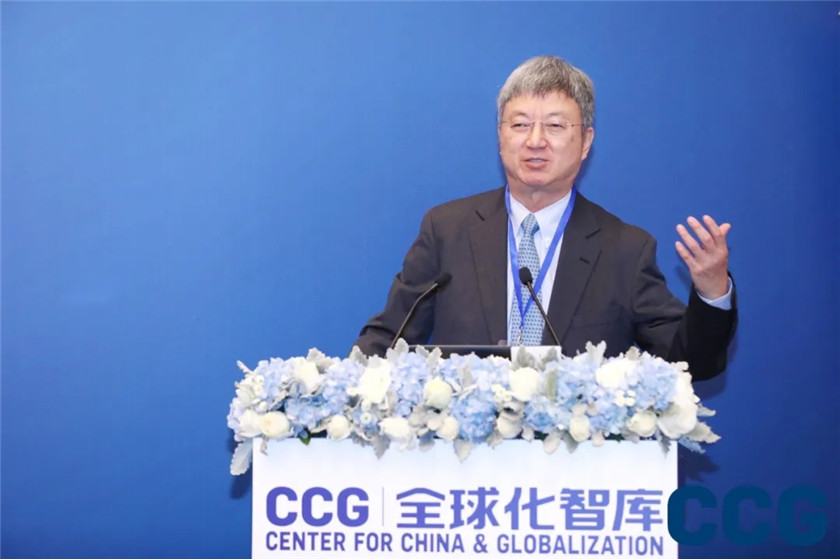
Zhu Min,chairman of the National Institute of Financial Research at Tsinghua University and former deputy managing director of the IMF
Zhu Min, chairman of the National Institute of Financial Research at Tsinghua University and former deputy managing director of the IMF, introduced the highlights of China’s 14th FYP. He pointed out key features of the 14th FYP: its focus on high-quality growth over a high growth rate and its people-centric approach. The economist also accentuated the significance of “dual circulation”, underscoring that it fundamentally requires smooth circulation in the domestic economy. However, he stressed that this does not mean isolated domestic circulation and indicated that competition from around the world can spur Chinese companies forward. He mentioned that interaction between the domestic market and international market will play a very important role, to stimulate and to push China’s technology and upgrading, moving up the value chain.
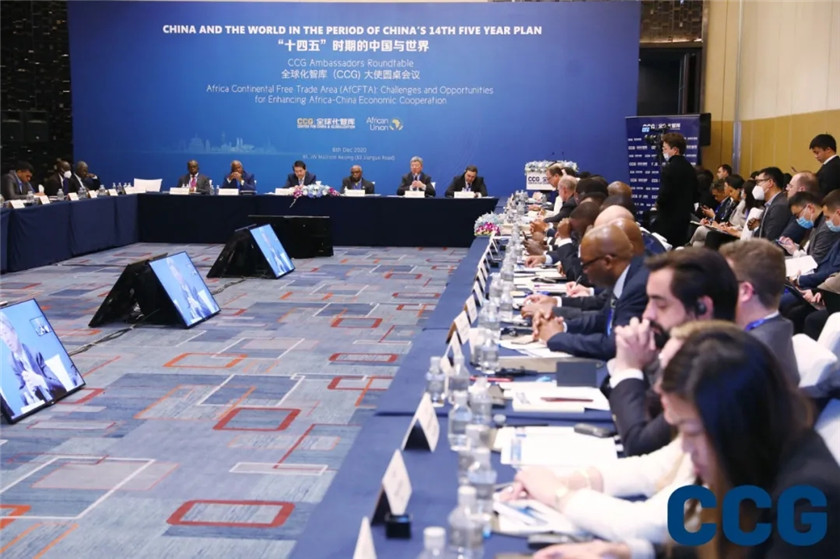
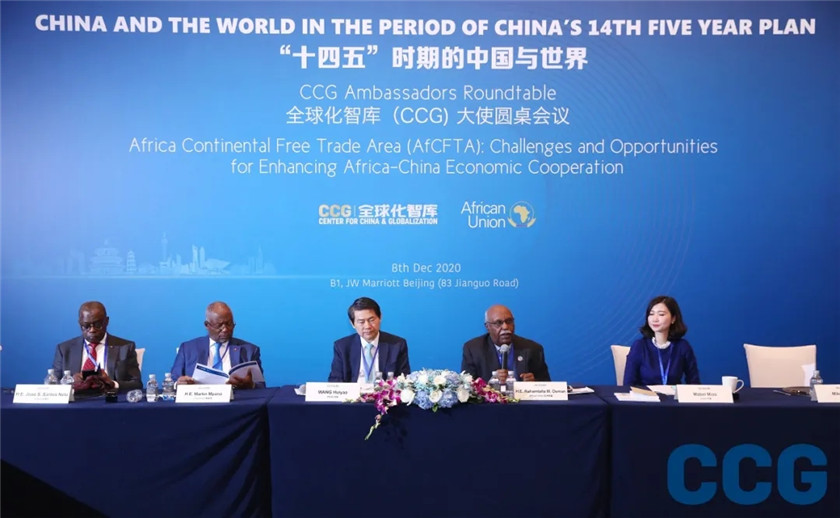
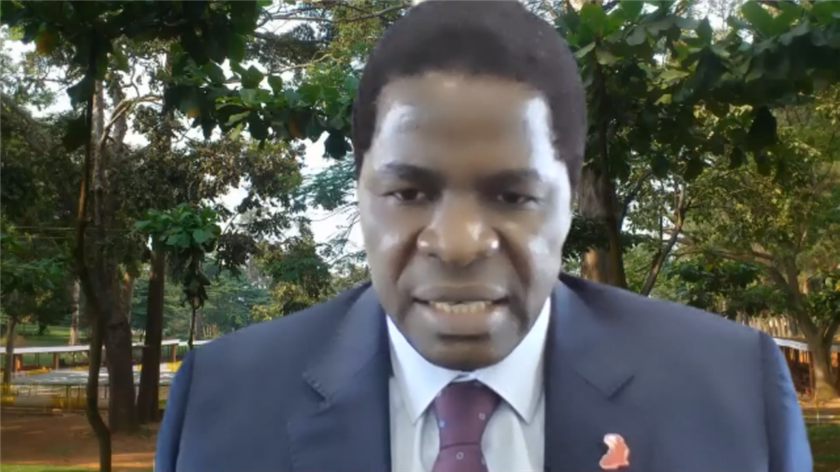
Dr. Francis Mangeni,head of Trade Promotions & Programs, AfCFTA
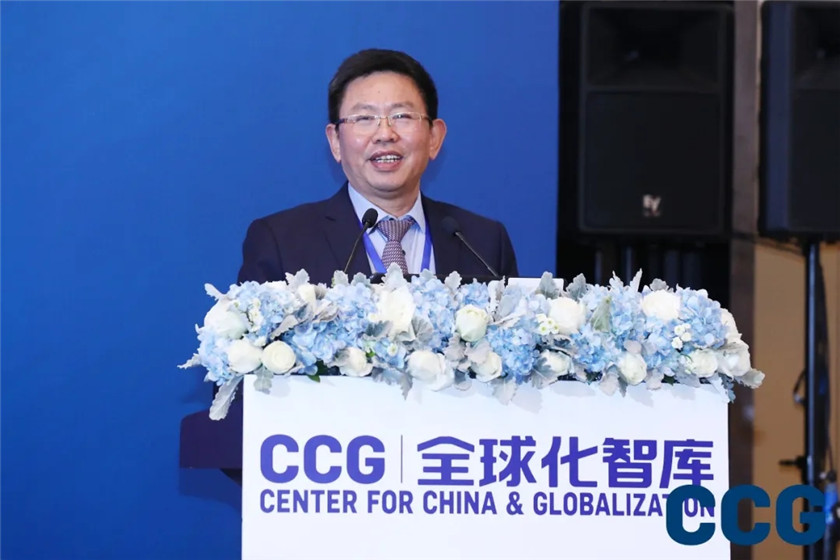
Zhang Huarong,president of Huajian Group
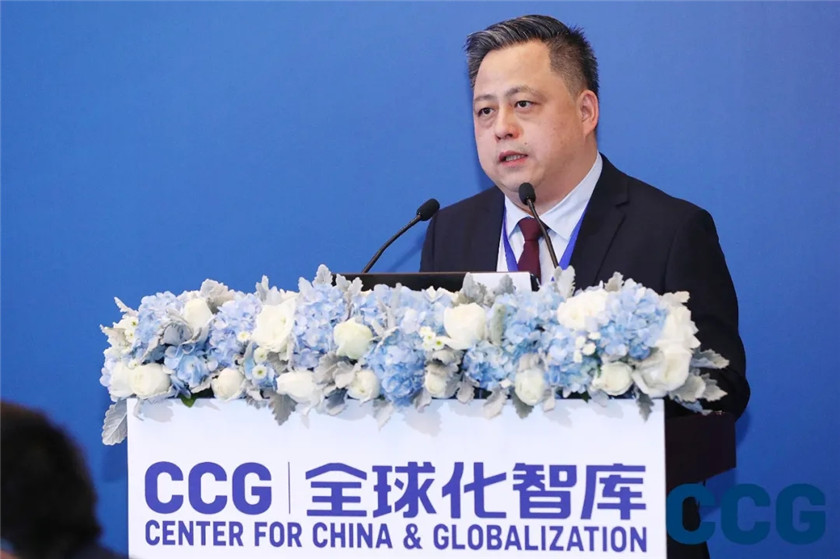
Zhu Zhaojiang,president of TRANSSION Holdings
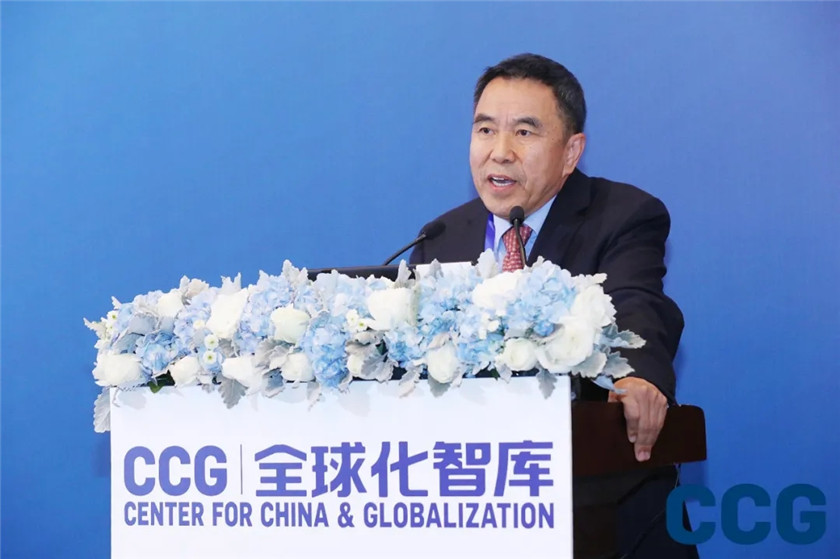
Pang Xinxing,president of StarTimes
Later, Dr. Francis Mangeni, head of Trade Promotions & Programs, AfCFTA, presented the latest progress of AfCFTA. Entrepreneurial representatives Zhang Huarong, president of Huajian Group; Zhu Zhaojiang, president of TRANSSION Holdings; and Pang Xinxing, president of StarTimes shared their experience of investment in Africa.
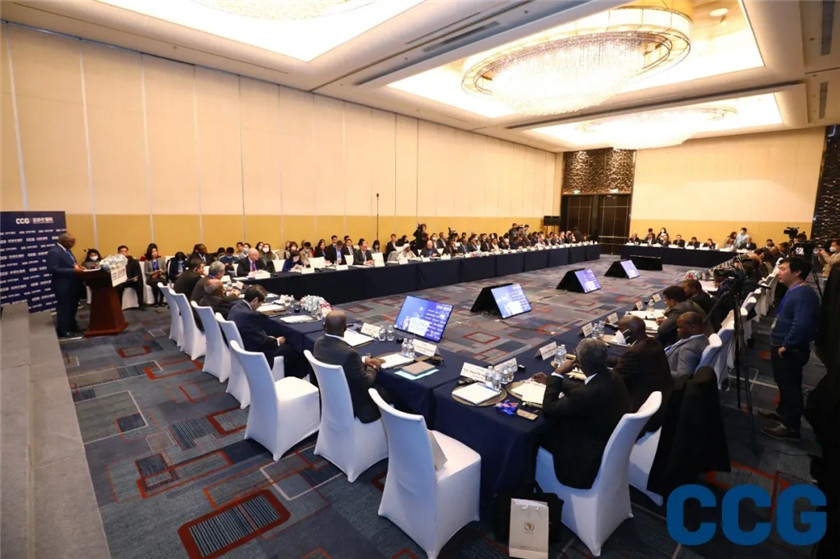
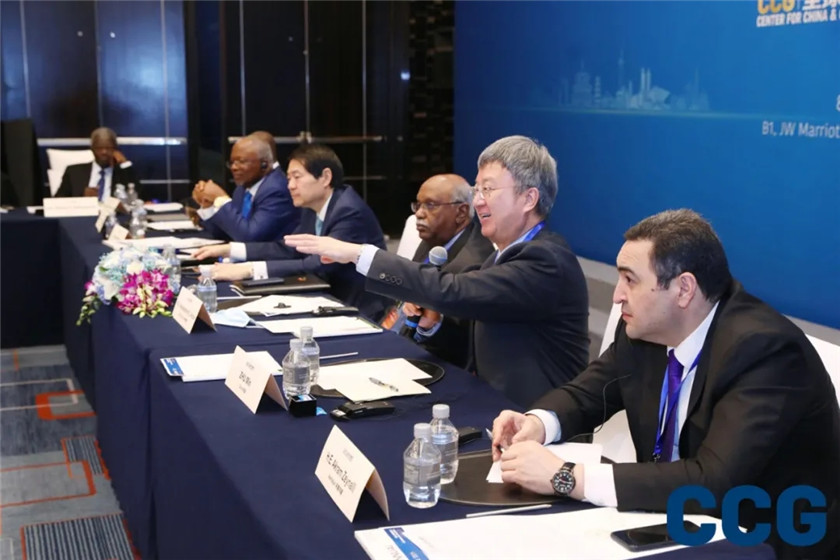
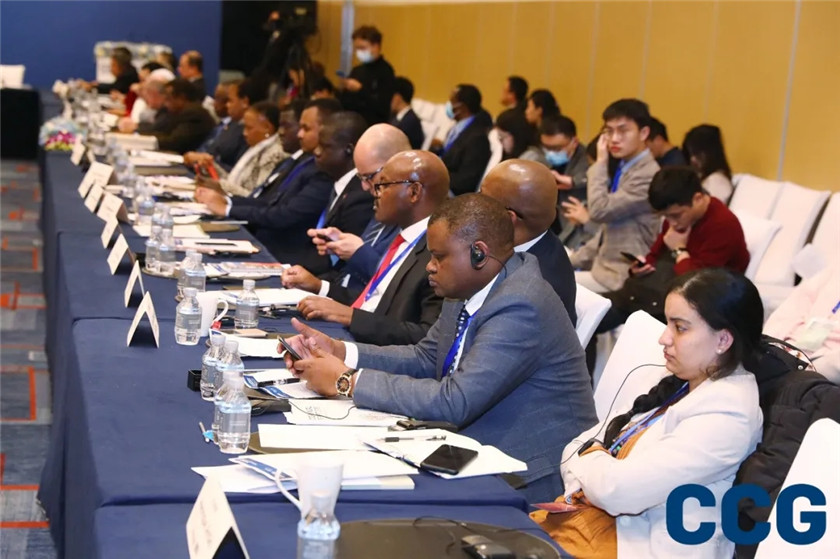
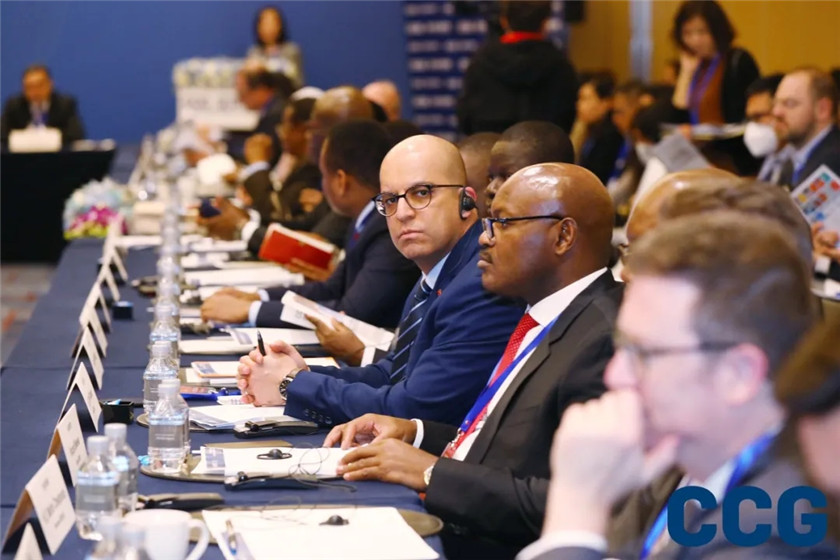
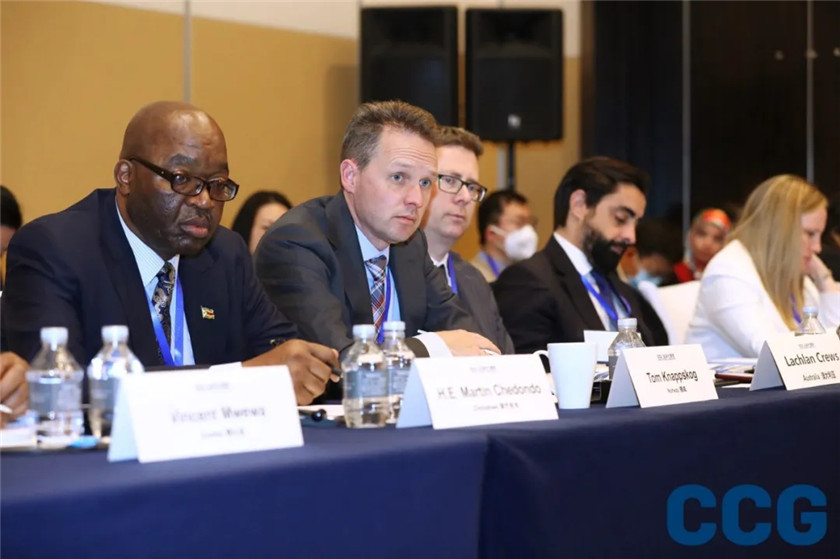
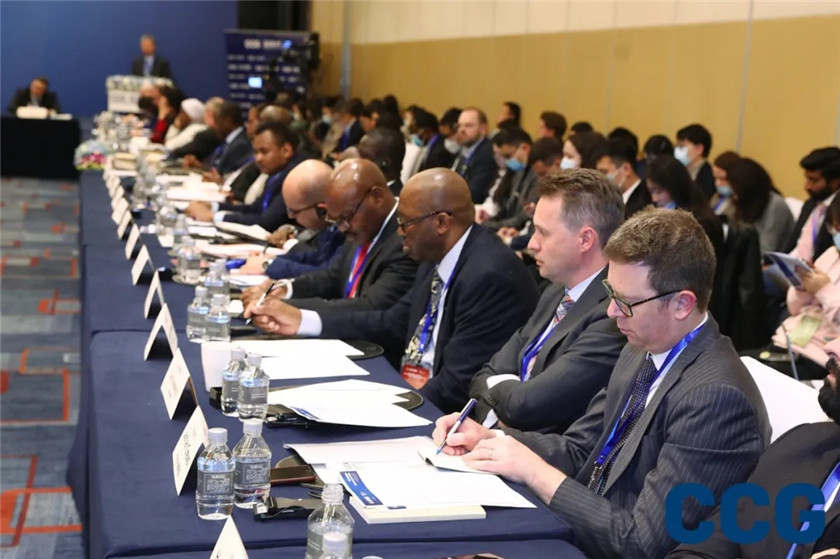
In the session of ambassadors’ comments and discussion, the ambassadors included H.E. Rahamtalla M. Osman, Permanent Representative of the African Union to China; H.E. Joao S. Santos Neto, Ambassador of the Republic of Angola; H.E. Akram Zeynalli, Ambassador of Azerbaijan; H.E. Simon P. Adovelande, Ambassador of the Republic of Benin; H.E. Martin Mbazumutima, Ambassador of Burundi; H.E. Tania S. Y. Romualdo, Ambassador of the Republic of Cabo Verde; H.E. Martin Mpana, Ambassador of the Republic of Cameroon, Dean of African Ambassadors Group; H.E. Maïtine Djoumbé, Ambassador of the Republic of Chad; H.E. Mr Andres Unga, Ambassador of Estonia; H.E. Masanneh Nyuku Kinteh, Ambassador of the Republic of the Gambia; H.E. Sarah Serem, Ambassador of the Republic of Kenya; H.E. Setenane Lechoo Daniel, Ambassador of the Kingdom of Lesotho; H.E. Dudley M. Thomas, Ambassador of the Republic of Liberia; H.E. Ahmed M.A Tabuli, Ambassador of the State of Libya; H.E. Jean Louis Robinson Richard, Ambassador of the Republic of Madagascar; H.E. Charles E.Namondwe, Ambassador of the Republic of Malawi; H.E. Didier Dacko, Ambassador of the Republic of Mali; H.E. Wong Yen Cheong Marie Roland Alain, Ambassador of the Republic of Mauritius; H.E. Maria Gustava, Ambassador of the Republic of Mozambique; H.E. Baba Ahmad Jidda, Ambassador of the Federal Republic of Nigeria; H.E. Mr. James Kimonyo, Ambassador of the Republic of Rwanda; H.E. Isabel Domingos, Ambassador of the Democratic Republic of Sao Tome and Principe; H.E. Ernest M. Ndomahina, Ambassador of the Republic of Sierra Leone; H.E. Mbelwa Kairuki, Ambassador of the United Republic of Tanzania; H.E. Dhia Khaled, Ambassador of the Republic of Tunisia; H.E. Martin Chedondo, Ambassador of the Republic of Zimbabwe.

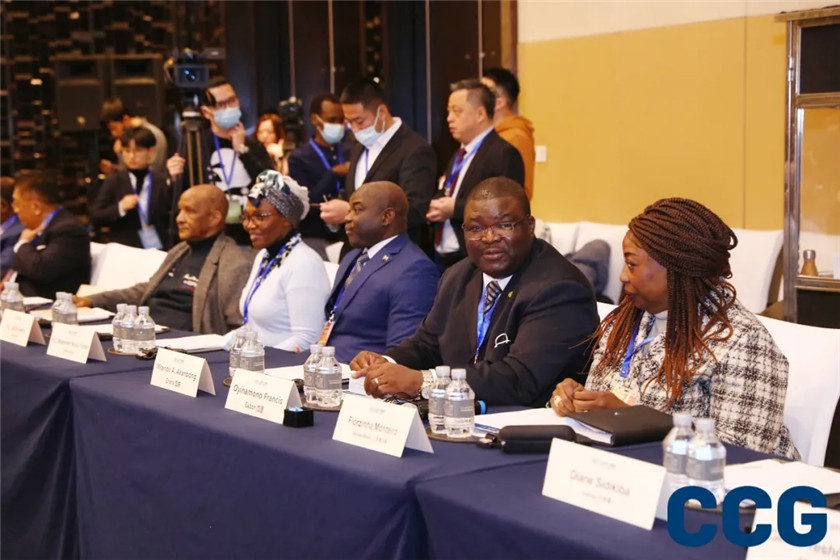
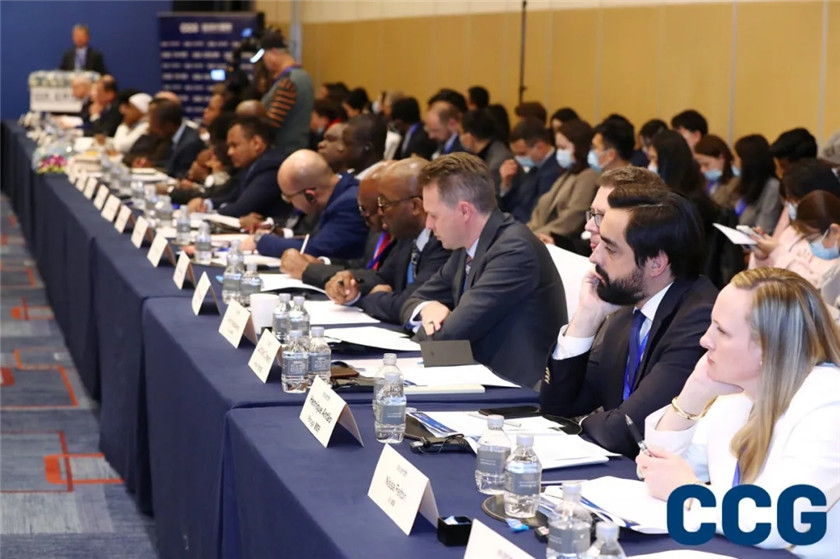
Panelists also included Mustafa Jamal, Economic Counsellor, Embassy of Afghanistan; Dr. Michael Berger, Commercial Counsellor, Austrian Embassy; David Pipinashvili, Minister Counsellor, Embassy of Georgia; Fabrizio Costa, Economic and Financial Counsellor, Embassy of Italy; Kinzhakulov Sultan, Commercial Counsellor, Embassy of Kazakhstan to China; Tom Knappskog, Deputy Mission, Embassy of Norway; Henrique Antao, Political Counsellor, Embassy of Portugal; Kevin Miles, Economist Official, US Embassy Beijing; Ting Wu, Political Officer, U.S. Embassy Beijing.
Participants of the Ambassador Roundtable also included representatives from the embassies of Australia, Burkina Faso, Comoros, the Democratic Republic of the Congo, Côte d’Ivoire, Cuba, Denmark, Djibouti, Ethiopia, France, Gabon, Guinea, Guinea-Bissau, Mauritania, Morocco, Netherlands, Niger, Russia, Singapore, South Africa, South Korea, South Sudan, Sudan, Togo, Uganda, the United Arab Emirates, Zambia.
